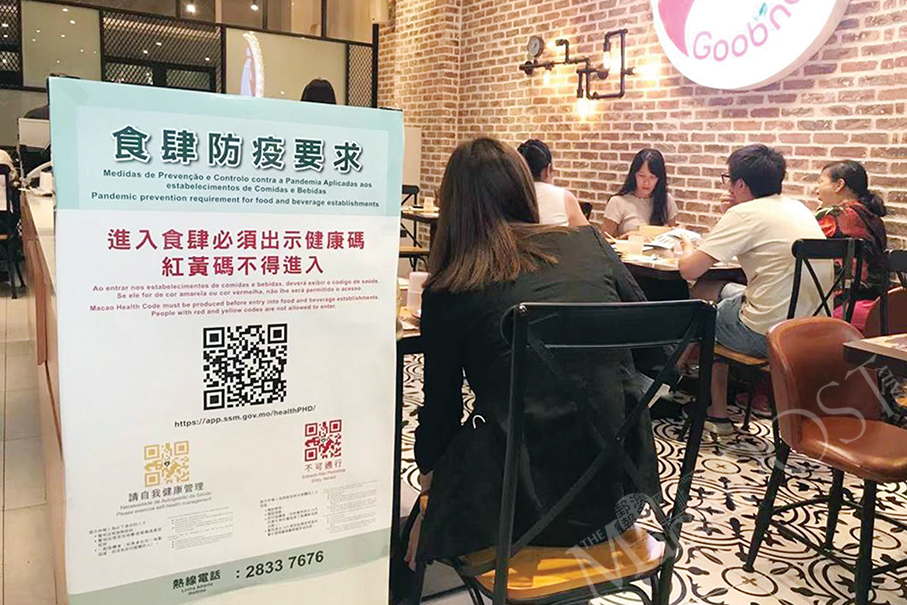The Legislative Assembly (AL) yesterday passed a government-initiated bill enabling Macau’s Lotus Flower border checkpoint to be relocated to the new Hengqin border checkpoint building.
The new legislation will apply local law on the Macau-side zone of the new Hengqin checkpoint and adjoining areas.
The bill’s outline was passed during a plenary session of the legislature in January this year. The legislature’s 2nd Standing Committee held three meetings to review the bill.
Secretary for Administration and Justice André Cheong Weng Chon attended yesterday’s plenary session when the bill was voted on article-by-article in its second and final reading
The bill passed yesterday is officially known as “Establishing the Fundamental Norms for the Application of the Macau Special Administrative Region Law on the Macau-side Checkpoint Zone of the Hengqin Checkpoint and Its Adjoining Areas”.
The local government has underlined that the joint checkpoint on Hengqin Island in Zhuhai can come into service when two conditions are met, namely 1) the passage of the bill by the local legislature – in its second and final vote, which was the case yesterday, and 2) the completion of tests of immigration facilities and the checkpoint’s ability to tackle a high flow of travellers. The local government has pointed out that the State Council will announce the date of the operational start of the joint checkpoint after the two conditions are met.
Cheong told reporters late last month that while the local government was initially striving for the joint checkpoint to come into use in the current quarter, now the operational start of the joint checkpoint will be postponed due to the novel coronavirus (COVID-19) epidemic. Cheong said at that time that while the installation of equipment in the new Hengqin checkpoint has been completed, the tests of the checkpoint’s ability to tackle traveller flows could not be carried out for the time being due to the COVID-19 epidemic.
Cheong said late last month that the traveller flow tests would simulate a scenario for 200,000 travellers passing through the checkpoint per day, adding that each time the test would require 10,000 people to participate at the same time. Cheong said that consequently the tests could only be conducted after the epidemic has stabilised.
On October 26 last year, the Standing Committee of the National People’s Congress (NPC) in Beijing approved a proposal by the State Council to relocate Macau’s Lotus Flower checkpoint from Cotai to Hengqin and grant the Macau Special Administrative Region (MSAR) jurisdiction over the Macau-side checkpoint zone of the new Hengqin checkpoint and adjoining areas. Later the same day, the local government said in a statement that it would draft related local legislation so that the Lotus Flower checkpoint can be relocated to the new Hengqin checkpoint building.
Macau’s border checkpoint in Cotai is linked to Zhuhai’s border checkpoint in Hengqin via the 1,756-metre long, six-lane Lotus Flower Bridge across a narrow river between the western shore of Cotai and the adjacent island administered by Zhuhai. The currently still separate Cotai-Hengqin checkpoints came into service in March 2000.
A joint Macau-mainland immigration and customs clearance system officially known as “joint inspection and one-time release” will be adopted at the future mainland-Macau joint checkpoint on Hengqin Island.
The decision by the NPC Standing Committee on October 26 authorises the MSAR to administer the Macau-side checkpoint zone of the new Hengqin checkpoint and adjoining areas from the day they come into use in accordance with Macau’s laws.
The decision passed by the NPC Standing Committee will be implemented in phases. Macau’s jurisdiction will cover: 1) the Macau-side checkpoint zone of the new Hengqin checkpoint, 2) the Lotus Flower Bridge, 3) a link – by access roads and a bridge – between the University of Macau (UM) campus on Hengqin and the checkpoint, and 4) an area reserved for the possible extension of Macau’s Light Rail Transit (LRT) to the checkpoint. The timing of the gradual implementation will be determined by the State Council, according to the decision.








